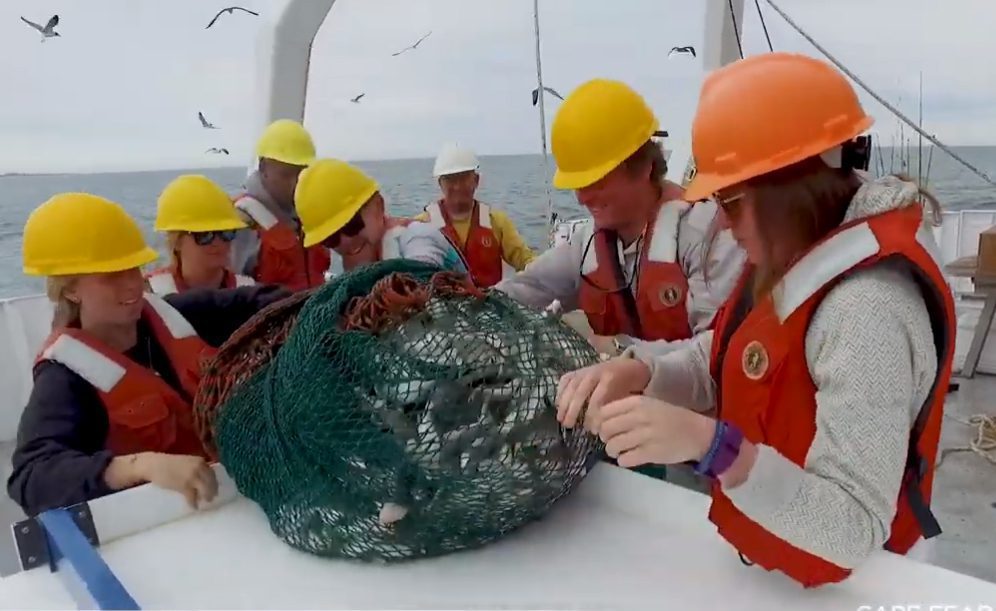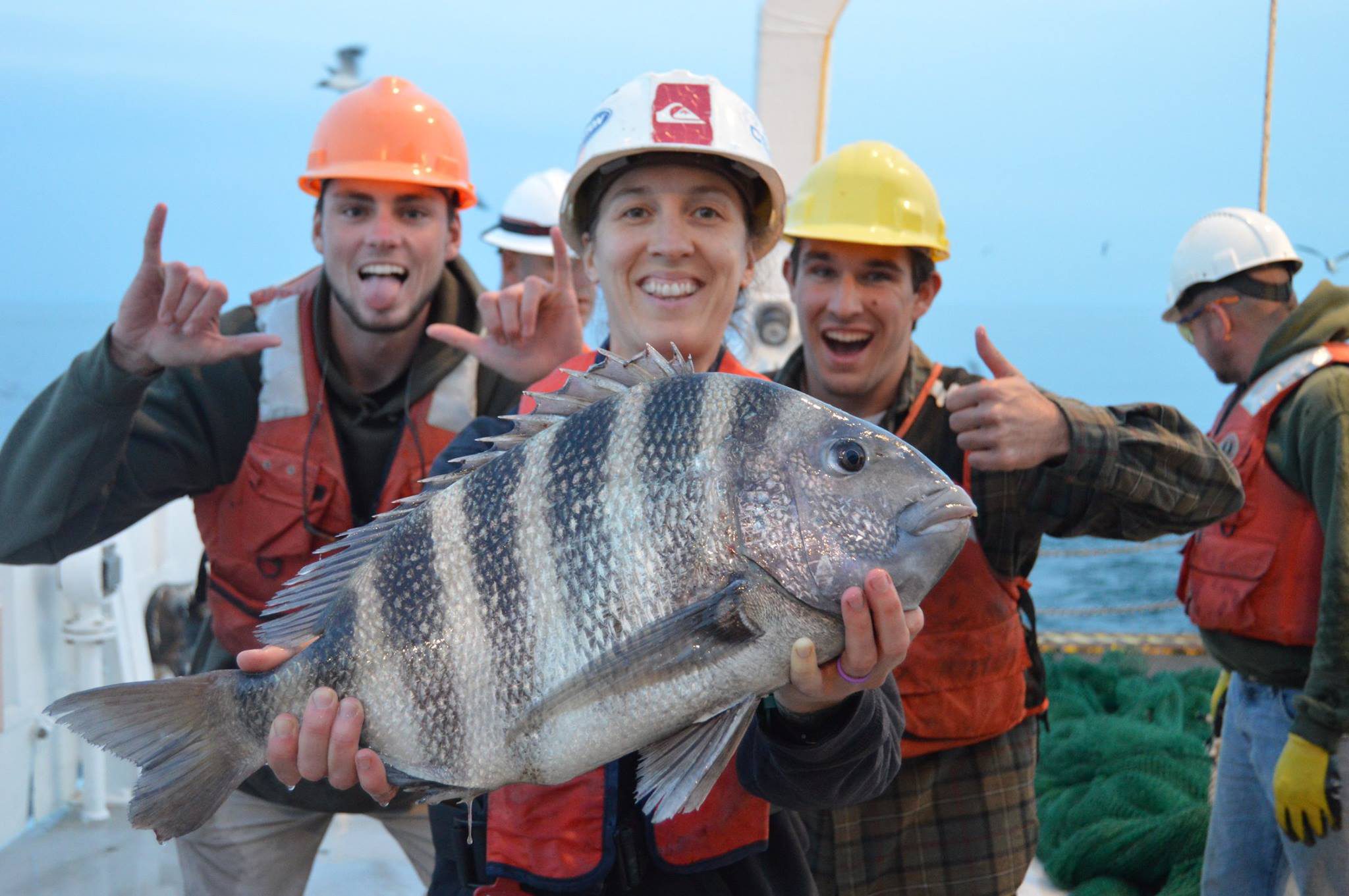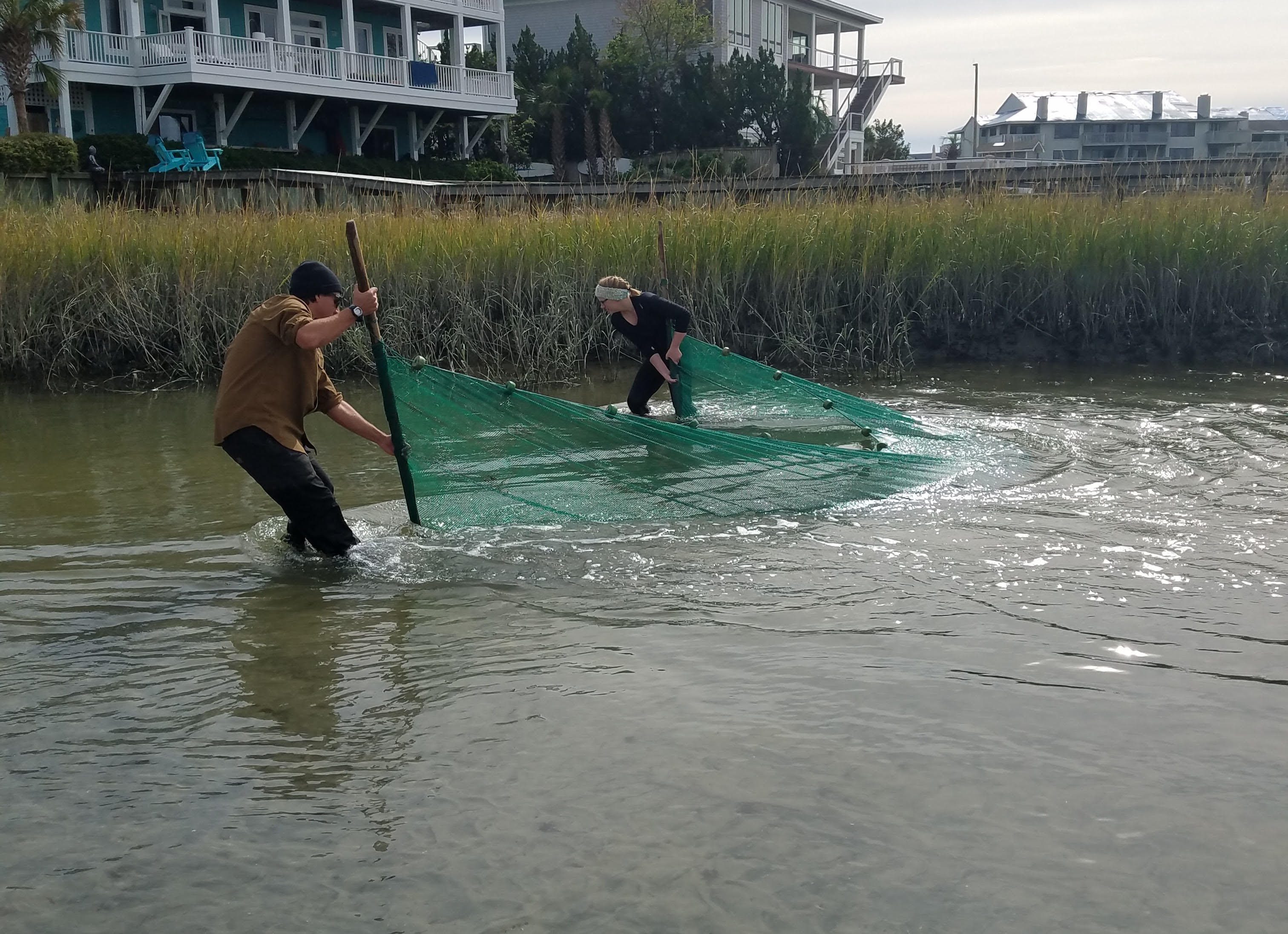Articles – CFCC Marine Tech
Anyone who has spent time fishing recreationally or commercially knows the alphabet soup of regulations that the average fisherman faces. The intent of these rules is to preserve the fishery, sometimes known as the natural resource, for the enjoyment of future generations.
Contrary to popular belief, these sometimes ‘onerous’ regulations are not created on a whim by the biologists of the National Marine Fisheries Service or the North Carolina Division of Marine Fisheries. In fact, these agencies have a staff of fishery technicians that work each day to collect the data that fishery biologists require to make the best management decisions possible.
These technicians collect data in various ways all through the year. Some of their sampling is done directly, in the field using small boats and working various gear types. This gear can include gill nets, trawls, and electroshockers, to list a few.

Cape Fear Community College Marine Technology students open the codend of the trawl during offshore biological sampling on the R/V Cape Hatteras.
Other technicians sample the recreation catch through surveys; these are the folks you see at piers and boat ramps asking about your day on the water. Finally, other technicians will visit fish houses or work as observers on commercial fishing vessels to document the commercial harvest.
Work continues in the lab for many of these techs. Almost all management questions can be answered through the collections of specific fish structures. Otoliths (the inner ears of fish) are used to estimate age and growth rates of a population. Gonads (reproductive organs) are used to determine size and age at sexual maturity, along with reproductive output of a population. Finally, digestive tracts are analyzed to determine common prey ingested.

CFCC Marine Tech students are responsible for identification of all trawl specimens that are caught in the trawl offshore on the R/V Cape Hatteras.
All of this wok requires technicians that are competent in both the lab and field. The Marine Technology program at Cape Fear Community College is one of the leaders in the country to provide this training. For over 55 years, CFCC’s Marine Technology program has been providing training that gives graduates the skills necessary to be successful working on the water in a scientific capacity.
In addition to fisheries work, Marine Technology graduates work in numerous other disciplines, such as hydrographic surveyors for dredging companies and the US Army Corps of Engineers. In fact, 96% of graduates from CFCC’s Marine Tech program are employed in industry.
The reason for such a high job placement rate is due to the hands-on training the program offers. Students spend 32 days at sea aboard the department’s dedicated training vessel, the R/V Cape Hatteras. This 135-foot, floating classroom, along with a fleet of smaller vessels, gets students the practical skills that employers demand.

CFCC Marine Tech students sample using seine nets in the marsh at Wrightsville Beach.
For more information on the Marine Technology program, visit www.cfcc.edu/martech or contact Jason Rogers directly at jrogers@cfcc.edu.
